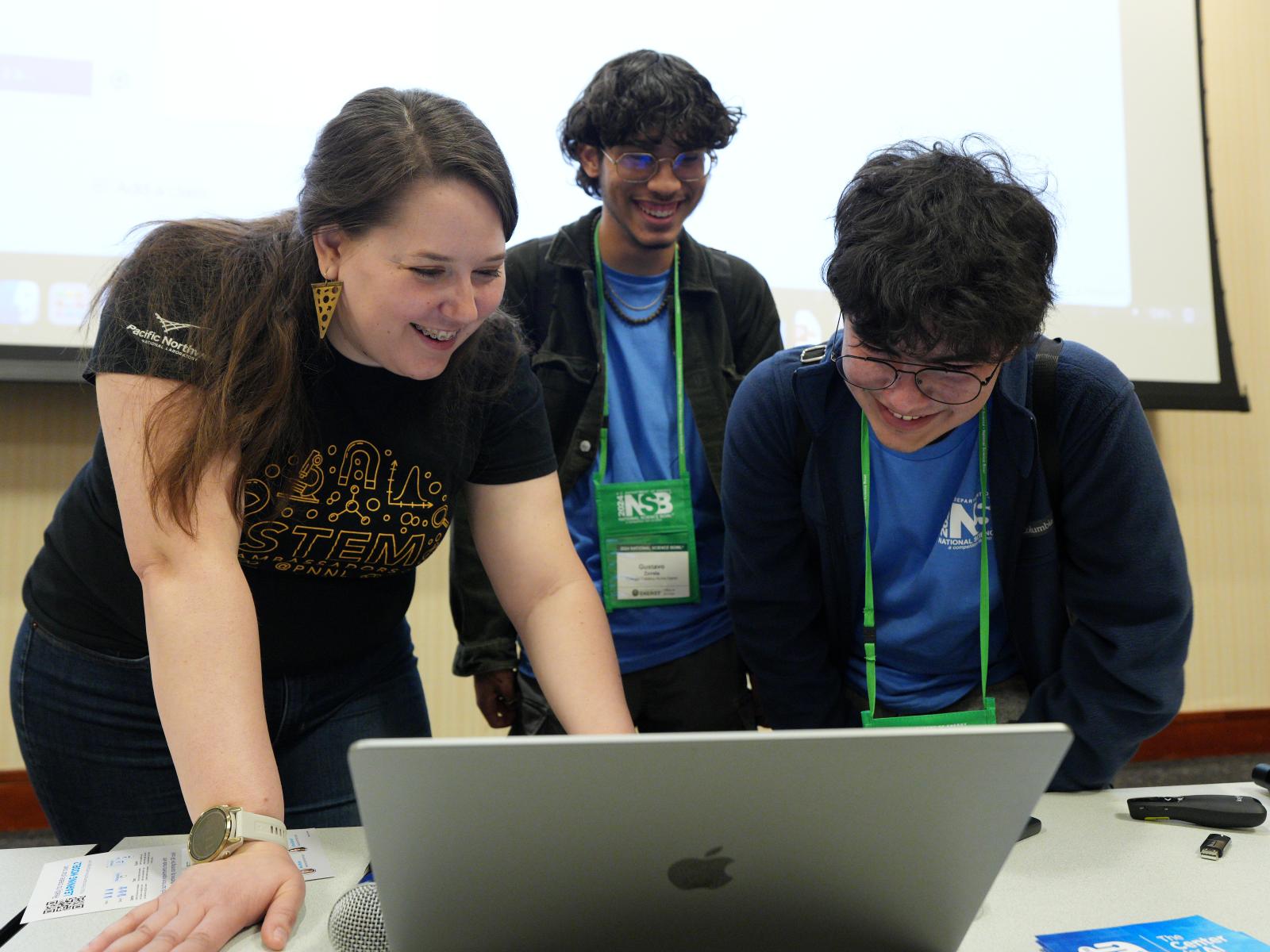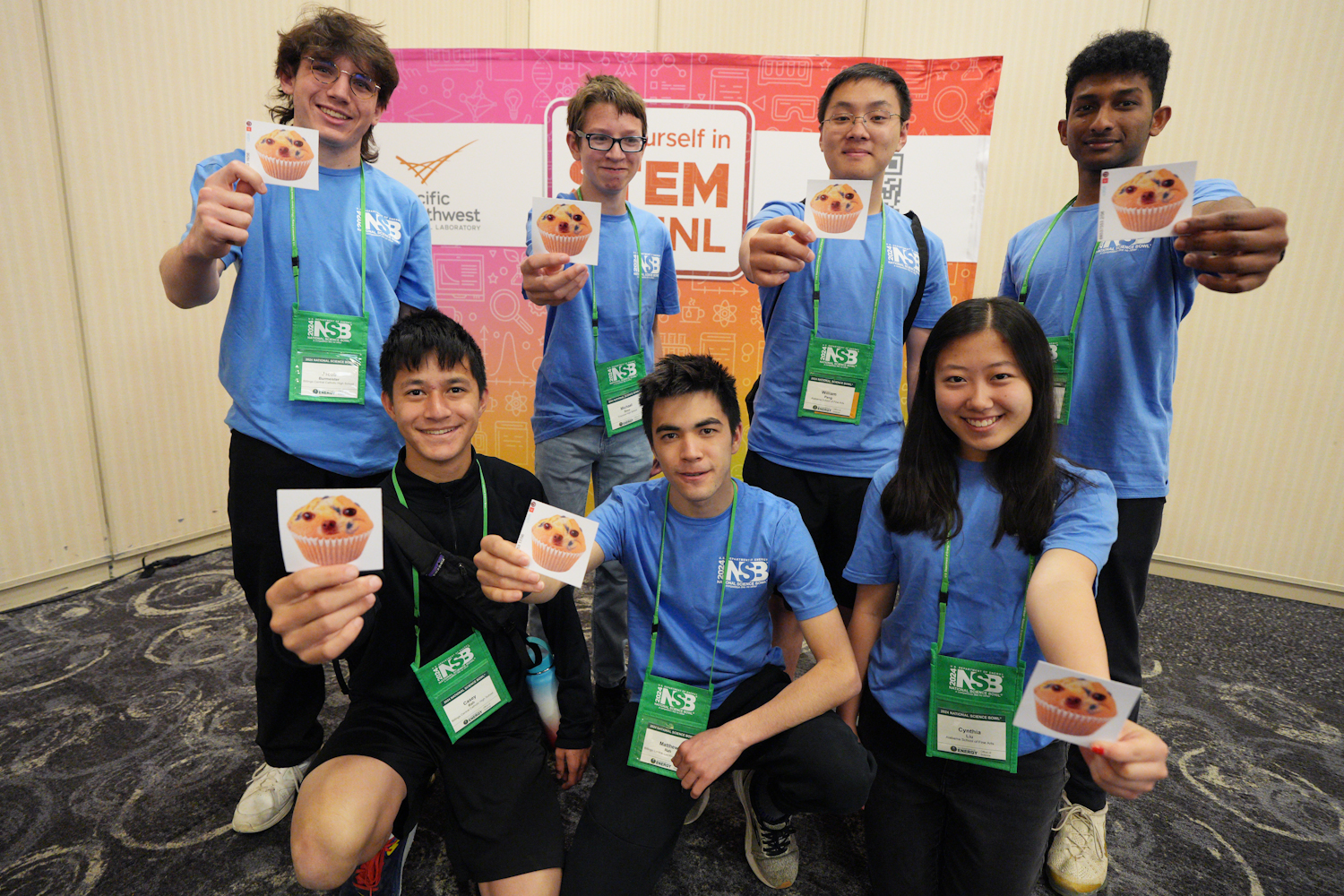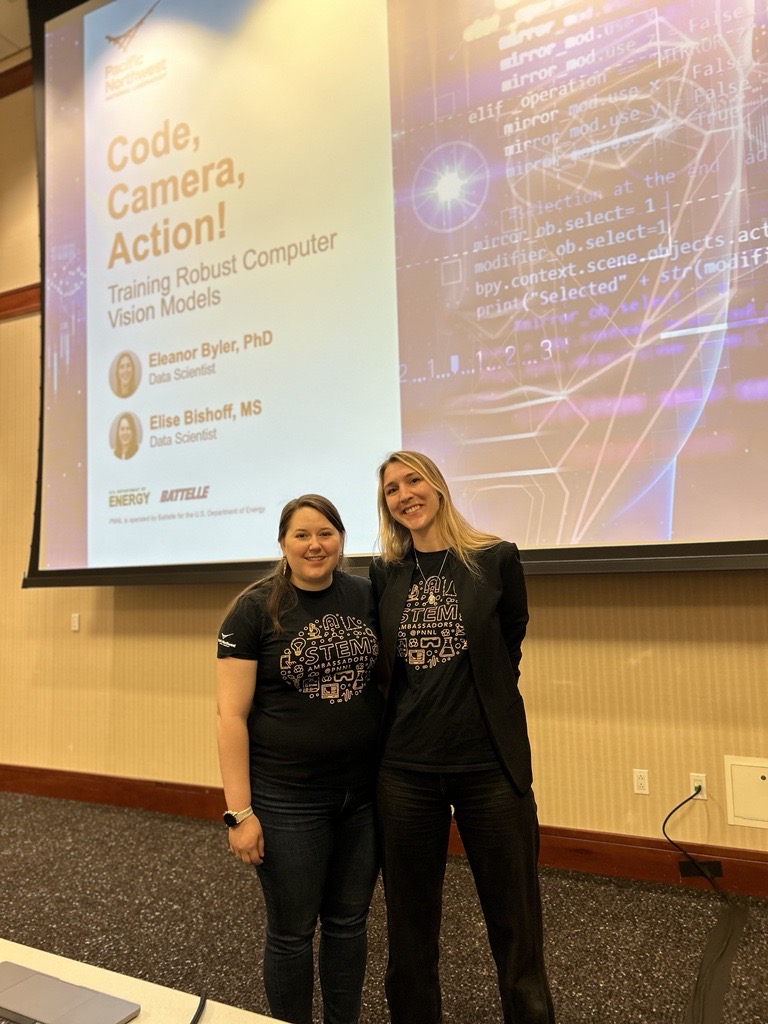Inspiring Students at the National Science Bowl
Nell Byler and Elise Bishoff shared their computer vision expertise

Data scientist Elise Bishoff (left) shows two high school students how to create their own artificial intelligence learning model.
(Image courtesy of the Department of Energy National Science Bowl)
What’s the difference between a dog and a muffin? While you may immediately be able to tell the difference between the two, computer vision models—a type of artificial intelligence (AI)—need to be trained first.
Students at this year’s National Science Bowl, hosted by the Department of Energy, were tasked to do just that. Pacific Northwest National Laboratory (PNNL) data scientists Eleanor (Nell) Byler and Elise Bishoff led some of the nation’s top high school students through a computer vision training experiment using Google’s Teachable Machine.
For Bishoff and Byler’s tutorial, students learned the basics of constructing a reliable and robust computer vision model. Then, they trained the model in real time and pinpointed ways the model could fail—setting the stage for students to build and train a more robust model themselves. Students had the choice between two tasks: training a model to differentiate between facial expressions or training a model to differentiate between body shapes.
“The students were really enthusiastic about this experiment—several of them told us they were excited to take what they learned and apply it to music, computers, and other tasks,” said Bishoff. “Many asked about PNNL’s internship programs to see how they could continue this work at the Lab.”

Byler and Bishoff both have a passion for teaching and mentoring the next generation of scientists. They both participate in PNNL’s STEM Ambassadors program to engage students in learning about PNNL’s AI research projects and STEM careers.
“There’s a depth and creativity to research carried out at PNNL,” said Byler. “Through the STEM Ambassadors program, we get to ignite a spark of excitement for research in others.”
Byler and Bishoff’s passion for outreach extends beyond PNNL. Byler led the University of Washington Mobile Planetarium program and co-founded Seattle's "Astronomy on Tap" event series. She has also been invited to speak at a variety of venues including the Seattle Museum of Pop Culture, the Olympic National Park, high school physics classes, and Girl Scouts science camps.
Likewise, Bishoff has led various machine learning reading groups, early career events, and recruiting efforts for Women in Data Science. Her work at PNNL afforded her the opportunity to teach data science across the globe, from local colleges to a workshop in Morocco.
Both Bishoff and Byler acknowledge the importance of role models and mentors in STEM.
“Mentorship is the most important factor in the long-term success of a scientist,” said Bishoff.

At PNNL, Byler leads several programs that leverage deep learning for satellite image applications, including volcanic plume quantification and chemical identification. Prior to coming to PNNL in 2020, Byler studied the origin and evolution of galaxies. Dr. Byler earned a BA in physics from Wellesley College and a PhD in astronomy from the University of Washington, Seattle. Dr. Byler was a National Science Foundation East Asia and Pacific Summer Institutes Fellow at the University of Tokyo's Kavli Institute for the Physics and Mathematics of the Universe and spent three years as a postdoctoral fellow at the Australian National University in Canberra, Australia.
Bishoff is a data scientist in the Applied AI Systems group at PNNL, where she currently supports transitioning data science research to deployable AI systems. Her work at PNNL has involved various data science topics such as the safety and security of machine learning models, natural language processing, record linkage on big data, model production, and robustness of computer vision models. Bishoff earned an MS in applied mathematics with an emphasis in data science from the University of Washington and a BS in mathematics with a minor in computer science from Seattle Pacific University.
Both Bishoff and Byler are members of the Center for AI @PNNL, which advances the frontiers of artificial intelligence to pioneer solutions that transform science, security, and energy.
Published: May 24, 2024